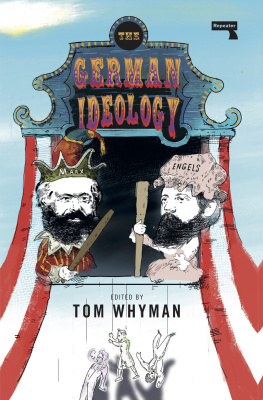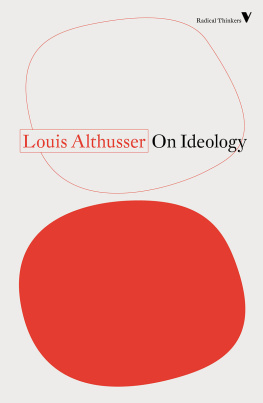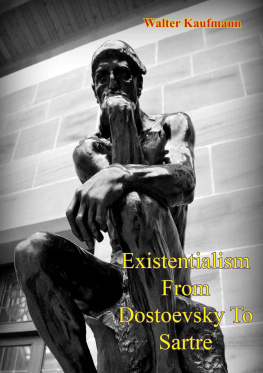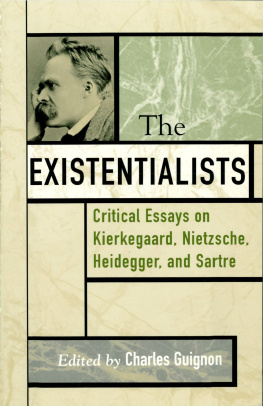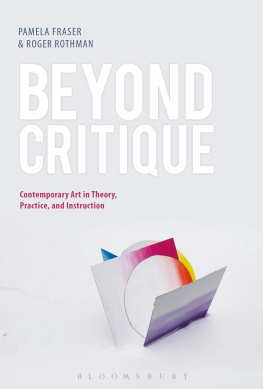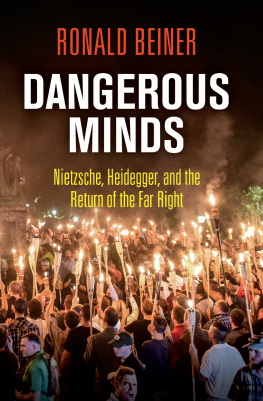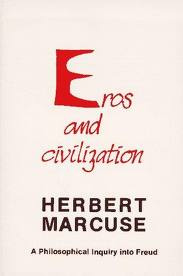ROUTLEDGE LIBRARY EDITIONS: FRIEDRICH NIETZSCHE
BREAK-OUT FROM THE CRYSTAL PALACE
BREAK-OUT FROM THE CRYSTAL PALACE
The Anarcho-Psychological Critique: Stirner, Nietzsche, Dostoevsky
JOHN CARROLL
Volume 1

LONDON AND NEW YORK
First published in 1974
This edition first published in 2010
by Routledge
2 Park Square, Milton Park, Abingdon, Oxon, OX14 4RN
Simultaneously published in the USA and Canada
by Routledge
270 Madison Avenue, New York, NY 10016
Routledge is an imprint of the Taylor & Francis Group, an informa business
This edition published in the Taylor & Francis e-Library, 2011.
To purchase your own copy of this or any of Taylor & Francis or Routledges collection of thousands of eBooks please go to www.eBookstore.tandf.co.uk.
John Carroll 1974
All rights reserved. No part of this book may be reprinted or reproduced or utilised in any form or by any electronic, mechanical, or other means, now known or hereafter invented, including photocopying and recording, or in any information storage or retrieval system, without permission in writing from the publishers.
British Library Cataloguing in Publication Data
A catalogue record for this book is available from the
British Library
ISBN 0-203-09267-8 Master e-book ISBN
ISBN 10: 0-415-56149-3 (Set)
ISBN 10: 0-415-56222-8 (Volume 1)
ISBN 10: 0-203-09267-8 (ebook)
ISBN 13: 978-0-415-56149-5 (Set)
ISBN 13: 978-0-415-56222-5 (Volume 1)
ISBN 13: 978-0-203-09267-5 (ebook)
Publishers Note
The publisher has gone to great lengths to ensure the quality of this reprint but points out that some imperfections in the original copies may be apparent. The publisher has made every effort to trace copyright holders and welcomes correspondence from those they have been unable to contact.
Break-Out from the Crystal Palace
The anarcho-psychological critique: Stirner, Nietzsche, Dostoevsky
John Carroll
Department of Sociology, La Trobe University, Australia
Routledge and Kegan Paul
London and Boston
First published in 1974
by Routledge & Kegan Paul Ltd
Broadway House, 6874 Carter Lane,
London EC4V 5EL and
9 Park Street,
Boston, Mass. 02108, U.S.A.
John Carroll 1974
No part of this book may be reproduced in any form without permission from the publisher, except for the quotation of brief passages in criticism
ISBN 0 7100 7750 5
Library of Congress Catalog Card No. 7389193
For my parents
Contents
Acknowledgments
I am indebted to Nigel Eastman, Anthony Giddens, Robert Marks, Peter Steele, Werner Pelz, Rainer Ruge, and John Hooper for various suggestions. This work was written as a doctoral dissertation for the University of Cambridge; it would not have been possible without the support of the Faculty of Economics and Politics. I owe my deepest gratitude, however, to George Steiner, who was much more than an academic supervisor for me. The entire project, from its initial formulation to its final detail, bears the stamp of his patient criticism and encouragement, applied with a rare sensitivity to the vicissitudes which beset the life and work of a research student.
Introduction: liberal-rationalism and the progress model
This study stands primarily as an essay in morals. It is governed by Nietzsches contention that the moral intentions of every philosophy constitute the real germ of life from which the whole plant has grown. Hence, although the investigation broaches psychological, social, political, and economic, as well as philosophical, problems, its driving thrust is towards the question of ultimate values. At stake throughout the discussion is the question of how men conceive of whether what they do is good or evil, and what this means. Attention is focussed on the psychological role that their action, and in turn their evaluation of it, plays for them personally. An essay in morals concerns itself with the quality of what men do, with the metaphysical essence of human theories and practices. This study is at the same time an excursion in intellectual or cultural history.
Three different intellectual traditions, each of which developed fundamentally during the nineteenth century, have supplied contemporary Western civilization with its key social images of man. These traditions have exerted in their different ways a decisive and enduring influence on patterns of behaviour and social structure. First, there is the British, liberal, utilitarian, rationalist social philosophy which sprouted from the roots of the school of Political Economy, and provided the emerging industrial society with its guiding ideology. Second, there is the Marxist socialist tradition. Third, there is the tradition with which this study is centrally concerned, one whose principal interests are psychological and whose political orientation is anarchist. The first two traditions are well known; the third has been completely neglected by modern philosophers and intellectual historians alike.
This study will defend the proposition that what is referred to here as the anarcho-psychological tradition developed in Europe between 1840 and 1890 as an original and coherent theory of human action. It
We are faced from the outset with the methodological problem of what constitutes an intellectual tradition. No problem would arise if it were possible to set down clearly and distinctly a list of characteristics which define anarcho-psychology. Cultural history, however, is amenable to such a strategy only at a futilely superficial level, an assertion which this study as a whole will substantiate. What has been called tradition is more accurately termed perspective. The initial proposition states that a group of individual thinkers developed a new perspective on mans estate; they posed, largely independently of each other, a series of questions which had not hitherto been considered; it is the radical nature of anarcho-psychological questions which stakes out the ground common to its theorists, and makes it worthy of investigation. These thinkers do not found a tradition in the sense of an elaborated canon of principles which is then handed down and developed by the next in line. (Moreover, this study is not especially concerned with questions of direct influence of one theorist on another, or with the particular social or economic background from which any of them came.)
A metaphor, allowing for generous poetic licence, illustrates the methodological strategy to be followed. It is as if there were three dominant mountains in a perpetually cloud-covered range. The task is to map one of them by climbing it, and hopefully thereby get a clearer impression of the range as a whole. In order to fix bearings it becomes necessary to take sightings of the other two mountains from different perspectives during the ascent. Most of the time, however, is absorbed in close examination of the terrain which is covered, aided by comparisons with corresponding areas which become visible on the slopes of the two alternative mountains.
Three organizing principles are employed in reconstructing the genesis and some of the consequences of the anarcho-psychological perspective. First, the claim is made that before Freud this perspective had three outstanding exponents: Max Stirner, Friedrich Nietzsche, and Fyodor Dostoevsky, whose written works form the primary data of this study. Second, as mentioned, anarcho-psychology is treated as one of three competing world-views. The latter section of this first chapter is devoted to sketching the leading characteristics of the first body of social theory, that which is termed liberal-rationalism and identified with an assumption of linear social progress and the utilitarian model of


